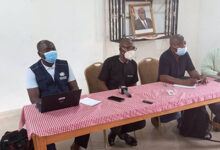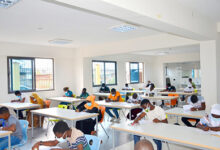Nutrition, family planning and health are requisites to quality education, productivity and our individual and collective survival, says Dr Leticia Adelaide Appiah, Executive Director of the National Population Council (NPC).
“Every human being needs oxygen to survive in the world, similarly, every community needs relevant education to change and thrive,” she added.
Dr Appiah said this in Accra when she delivered a key note address on the theme “Nutrition, family planning and health on quality education” organised by Christ the King Catholic Youth Organisation.
She said education ultimately availed us with knowledge in diverse fields, which enabled one to build the requisite confidence to improve our lives materially, physically and spiritually.
The executive director of the NPC said the importance of education to people of all ages, races and gender could not be emphasized enough, adding that education could be grouped in three main phases or themes.
The first phase she said was learning to read, explaining that in the early life of children, they required education to learn how to speak and write well.
She said the second phase was where we now read to learn, saying that normally happened in the adolescent or adult ages mainly for specialised skill acquisition.
Dr Appiah said the final phase was the education that enabled the individual to transform the bulk of the knowledge acquired into innovative products and services to improve human lives.
“Individual education and exchange of knowledge among people were important because of the casual reciprocal relationship between poverty and ignorance, which could only be broken with education and also our collective education was what transforms potential resources into commodities by adding value,” she underscored.
The speaker said thriving economies relied on science and technology, which in turn relied on harnessing God’s given talents to individuals, which relied on education.
According to her, educational advancement, technological progress and economic productivity were the unified process, the foundation of which was education.
“For us to be productive, sowing the seed (pregnancy) at the right time (low risk periods) and nurturing the seed (maternal nutrition, infant nutrition and education) will result in healthy population for accelerated socio-economic development,” she stressed.
She said for education to yield the desired results just like farmers harvesting a good yield, there were some necessary non-negotiable pre-conditions that should also be met and these were nutrition and health prior to conception, during pregnancy and post-delivery.
Touching on the need for planning for adequate nutrition, Dr Appiah said in order for nations to reap from the investment in education, focusing on maternal and infant nutrition prior to conception, intra partum and post-delivery could not be underestimated.
The speaker said West African Examination Council in 2017 registered 289,210 candidates for the West Africa Senior Secondary Certificate Examination, in 2018, the number increased by 9.6 per cent to 316,999 candidates and in 2019 it increased again by 9.2 per cent to 346,094 candidates.
She bemoaned that insufficient and unbalanced food intake have been found to have negative effect on childhood educational attainments, especially in mathematics and the sciences, the subjects on which societal transformation hinges on.
BY ALFRED NII ARDAY ANKRAH





